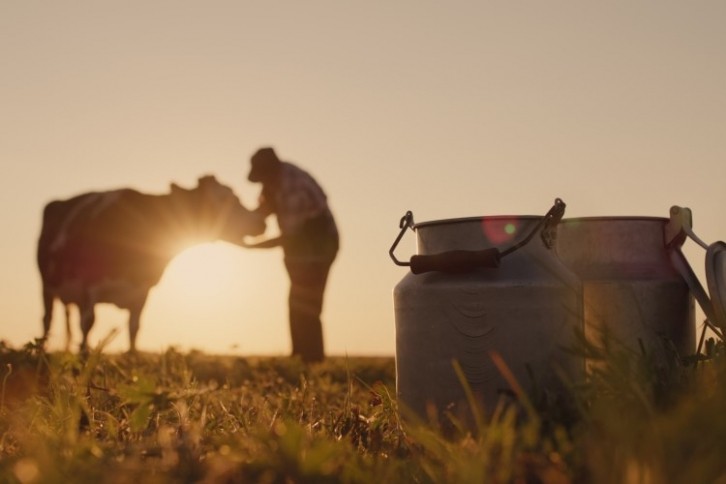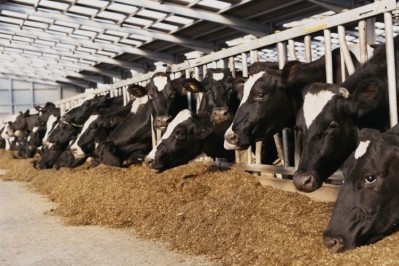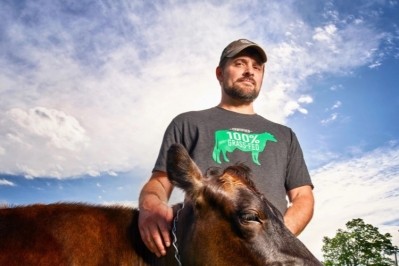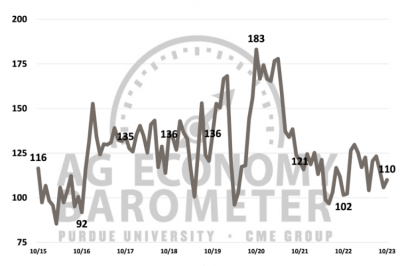US: ‘Dairy cliff’ avoided after last-minute Farm Bill extensions agreed

The 2018 Farm Bill extension means funding programs such as the Dairy Margin Coverage can continue until a new bill is introduced. Without the extension, some policies would have reverted back to a 1949 law that sets milk prices relative to the 1910s. This is known as the 'dairy cliff' and would have required the USDA to step in in order to raise the price of milk and other commodities.
Following the approval of the extension, the four leaders of the House Committee on Agriculture stressed that this measure was ‘in no way a substitute for passing a five-year Farm Bill and we remain committed to working together to get it done next year’.
Other industry voices have warned lawmakers against putting off the passing of the new bill until too long.
Michael Dykes, D.V.M., president and CEO of the International Dairy Foods Association (IDFA), said that while the extensions will allow important dairy-related programs to continue to operate until September 30, 2024, there’s still plenty of work for the USDA and the FDA in the next two months.
“While the bill gives Congress another year to pass a strong Farm Bill, it only keeps the lights on at USDA and FDA for another two months. IDFA urges Congress to pass a FY2024 funding bill that fully funds Healthy Fluid Milk Incentives Projects, retains milk and dairy benefit levels for WIC moms and children, and maintains dairy’s central role in the federal school meals program.”
The National Milk Producers Federation also welcomed the Farm Bill extension but added the organization was ready to work with lawmakers in order to deliver a new bill ‘as swiftly as possible’.
Jim Mulhern, president & CEO of the NMPF, said: “We commend House and Senate Agriculture Committee Chairs Glenn Thompson and Debbie Stabenow, as well as Ranking Members David Scott and John Boozman, for their bipartisan work to finalize this farm bill extension as part of the congressional spending agreement President Biden signed today.
“Along with continuing critical programs for dairy farmers, the legislation allows the Dairy Margin Coverage program to continue operating without the uncertainty of a potential disruption. DMC is an important and effective safety net for dairy farmers nationwide. This legislation includes the 2019 production history update as part of the program, and we look forward to 2024 DMC sign-up in the coming weeks.
“With this bill passed, we stand ready to work closely with the House and Senate Agriculture Committees to deliver a strong, five-year farm bill as swiftly as possible.”
American Farm Bureau Federation president Zippy Duvall said the AFBF was ‘grateful’ for the passing of the extension but urged legislators to ‘stay focused on a new, modernized farm bill that recognizes the many changes and challenges of the past five years’.
“The current farm bill was written before the pandemic, before inflation spiked, and before global unrest sent shock waves through the food system,” said Duvall. “We need programs that reflect today’s realities. So much work has been done by the agriculture committees in both the House and Senate over the past 18 months to prepare to craft a smart and effective farm bill. Congress must keep that momentum going.
“While an extension is necessary, they're running out of time to write a new bill. We need a new farm bill in early 2024. The farm bill affects every American by helping to ensure a safe, stable and affordable food supply. Let’s make sure we get it right in 2024.”
Over in New York, where dairy producers continue to grapple with a shortage of milk cartons, the New York Farm Bureau spokesperson Steve Ammerman urged lawmakers to pass the new Farm Bill ‘early next year’.
He said that getting the extension was ‘better than the alternative’ but encouraged lawmakers ‘to not wait another year’. “Let’s try and get this done early next year to provide some certainty for our farmers and to address some of the issues that they have experienced over the last four years,” Ammerman said. “Inputs are up across the board for our farms as much as they are for everyone else. Fuel is high, fertilizer costs went up, machine parts are more expensive and we would like the Farm Bill to reflect the current state of our economy.”
He added that the farm bureau wants the milk marketing order and the pricing formula for dairy to also be included in the new Farm Bill.
New York senator Chuck Schumer – who also called on the USDA to investigate the milk carton shortage – said extending the current Farm Bill beyond 2023 had been ‘vital’ for the industry. “I helped enact the Dairy Margin Coverage Program in the 2018 Farm Bill and I am proud to have secured this vital year-long extension while we work to develop the bipartisan Farm Bill in the next year,” he said in a press statement.
Food security is on the line, NGO warns
The funding of the Supplemental Nutrition Assistance Program (SNAP) – which currently makes up around 80% of the Farm Bill’s spending – has been one of the most hotly-debated topics among lawmakers, with Republicans pushing for new proof of work requirements and Democrats opposing this with the view that additional requirements could worsen the hunger epidemic across the country.
Karen Perry Stillerman, deputy director of the Food and Environment Program at nonprofit science advocacy group Union of Concerned Scientists (UCS), said that according to NGO’s recent polling, more than 3 in 4 voters in key states see the lack of access to food assistance programs like SNAP as a ‘threat to their communities’. “A majority of these respondents want to see Congress focus their energy on making sure people have enough to eat – not further limiting who gets help. Lawmakers should listen to them and protect food access through SNAP,” she commented.
“The extension merely affords the agriculture committees breathing room and another chance to write a food and farm bill that the country needs—one that rises to the challenge of the moment by making farm programs more equitable, enabling farmers to thrive in the face of a changing climate and be part of the solution, and creating a more secure and resilient food system for all of us.”











